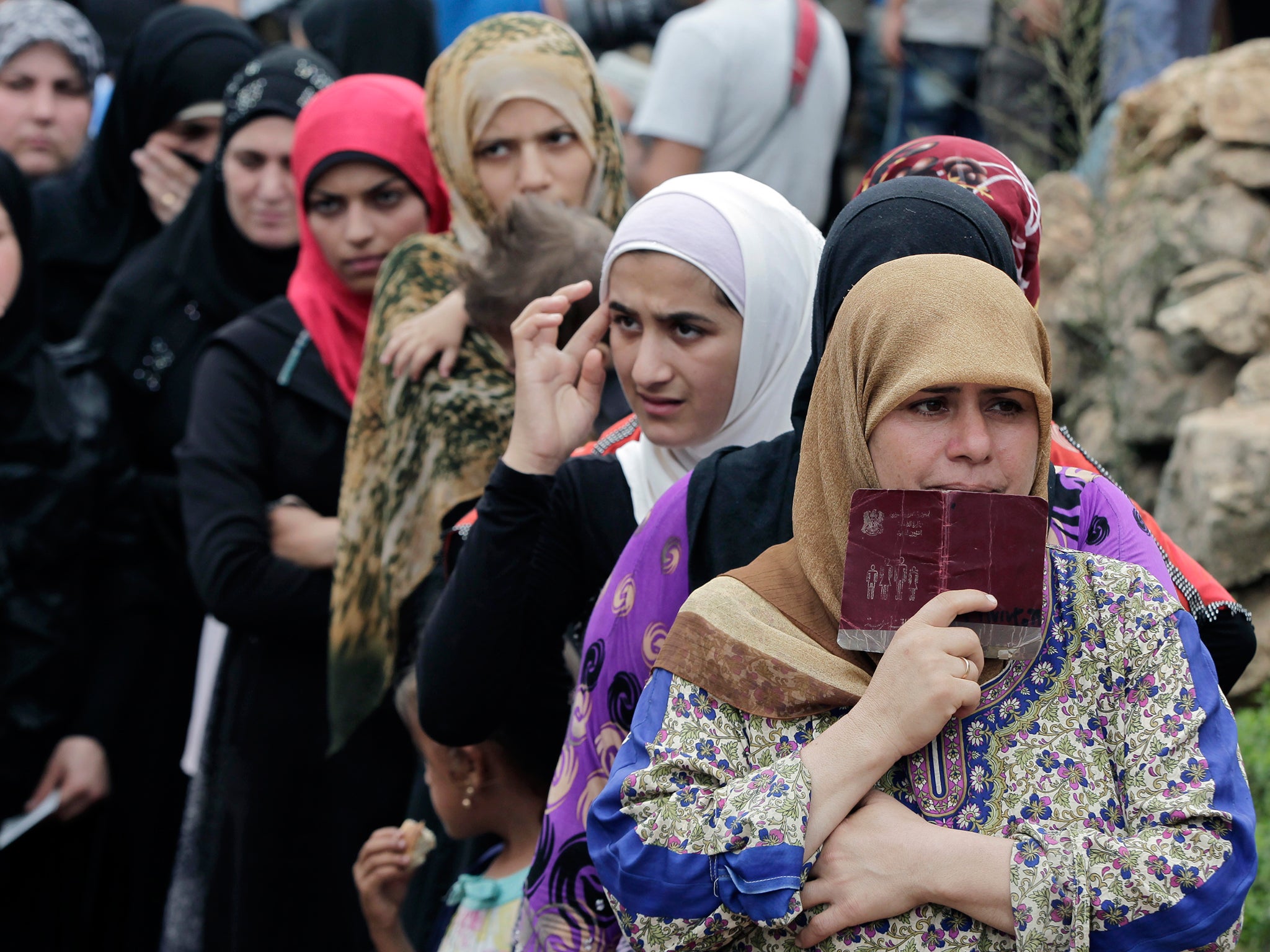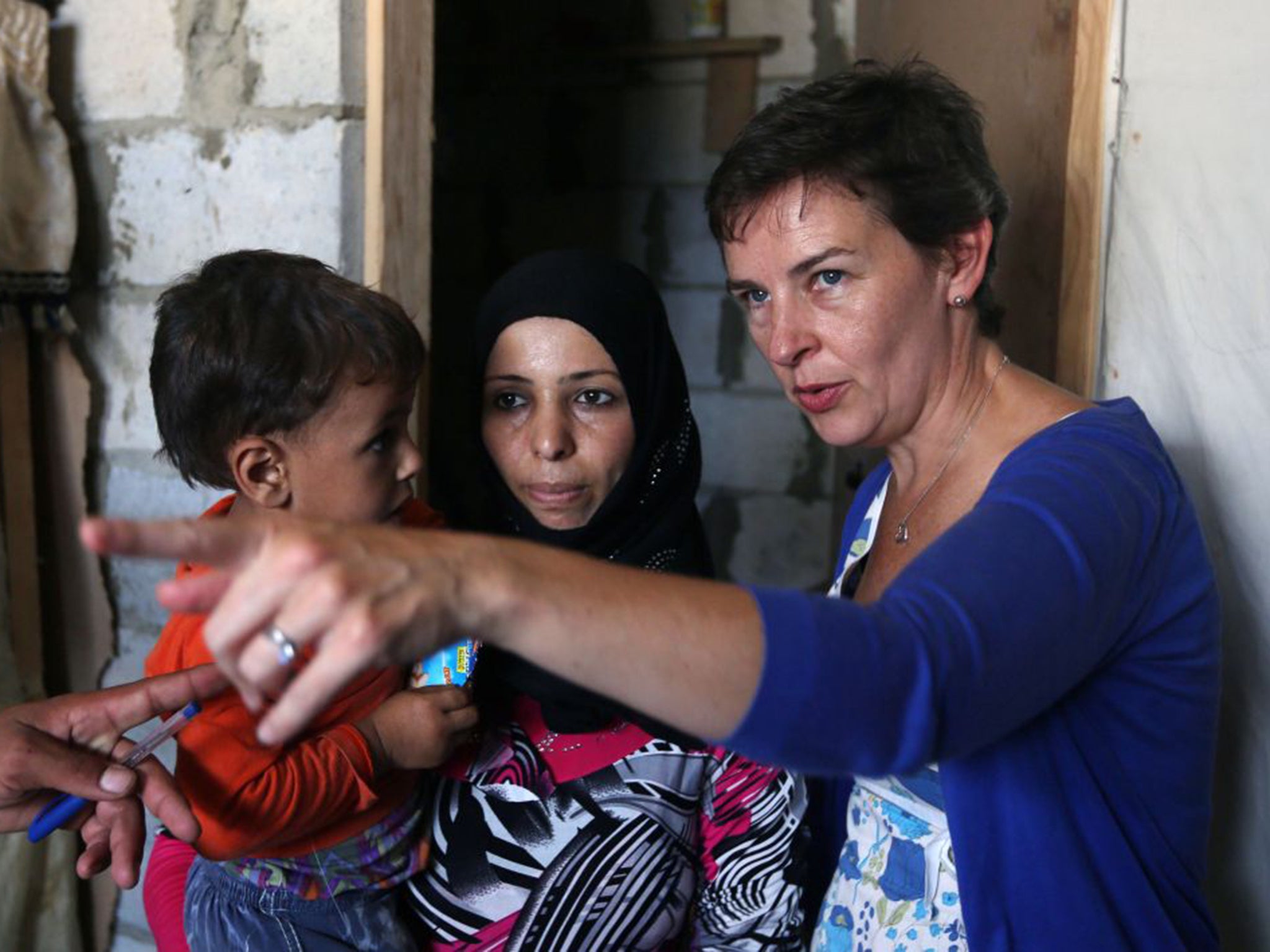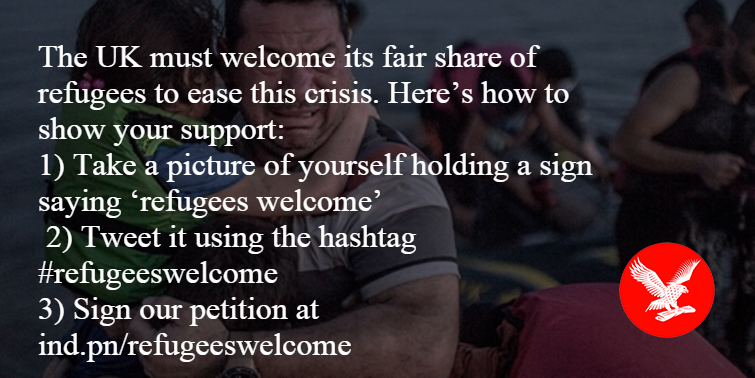Refugee crisis: The grim reality faced by the Syrian refugees stranded in Lebanon
More than 1.1 million refugees are hosted by a country overwhelmed by crisis

“I would go by sea if I could,” says Hiba Sayyed softly, her lips pursing in quiet anger as she speaks. “But it costs $5,000 and I don’t have that money. If I had it, yes, even if I might die in the sea I would go – life here is too hard.”
Ms Sayyed, 24, is just one of more than 1.1 million Syrian refugees being hosted by Lebanon, a tiny country that had a population of four million before civil war broke out in neighbouring Syria.
Her story is typical. A year or so ago, her husband went missing in their hometown of Ghouta – the Damascus suburb hit by a chemical weapons attack believed to be the work of the Assad government. Fearing for her life, she fled to Lebanon with her five children and now lives in poverty in an informal camp in the Chouf Mountains.
“I want to educate my kids, I want to feed them,” she says as she waits in line for food kits from the UK charity, Islamic Relief. “None of them are able to go to a formal school here, and the food aid gets smaller every day. Nothing is easy.”
Lebanon has been overwhelmed by its refugee crisis. The government has refused to set up formal camps like those in Turkey and Jordan, which provide refugees with plumbing, drinkable water, weather-proof shelters and regular electricity. Instead, refugees like Ms Sayyed are spread out across the country, mostly in poor, rural neighbourhoods and have to depend on handouts from a variety of aid organisations, which can be sporadic and insufficient. The World Food Programme announced this summer that funding shortfalls had forced it to cut the value of its food vouchers for Syrian refugees in Lebanon in half, to just £9 a month.
Many of the refugees have been here for years, and have no hope of returning to Syria soon, but see little chance for a future in Lebanon. Just 30 per cent of Syrian refugee children in Lebanon are able to go to school.
The hope for a better life – particularly for one’s children – is the driving factor behind a refugee crisis that much of the Middle East has been shouldering for years, and that has now begun to wash up on the shores of Europe. In Europe, there are fears of a potentially overwhelming influx. Denmark has placed ads in several Lebanese newspapers warning potential asylum-seekers of new restrictions. But the reality is that less than 10 per cent of the 4.5 million Syrians who have escaped the four-year conflict have sought safety in Europe, according to the UNHCR. More than 50 per cent are in Turkey.

At Ketermaya, an informal settlement for more than 300 refugees, mothers cradle babies with flushed cheeks and sticky eyes while shoeless children dart in and out of the tents they call home.
At the mention of the idea of going to Europe, crowds of desperate men and women quickly gather. Waving passports and refugee documents, they are all eager to know which is the best country to apply to and how to get there alive. “I would love to go to Europe,” pleads Farah Nimer, 29. “But I am too scared to go by boat. I can’t even swim, let alone my three children. I would be the first to drown.
“If Britain offered to resettle me I would go in a second,” she adds, pulling her two-month-old baby closer. “My daughter is sick, they think she has blood cancer and she needs a transfusion. I can’t afford it and UNHCR says they can’t cover it. Is Britain good to refugees?”

Join our commenting forum
Join thought-provoking conversations, follow other Independent readers and see their replies
Comments